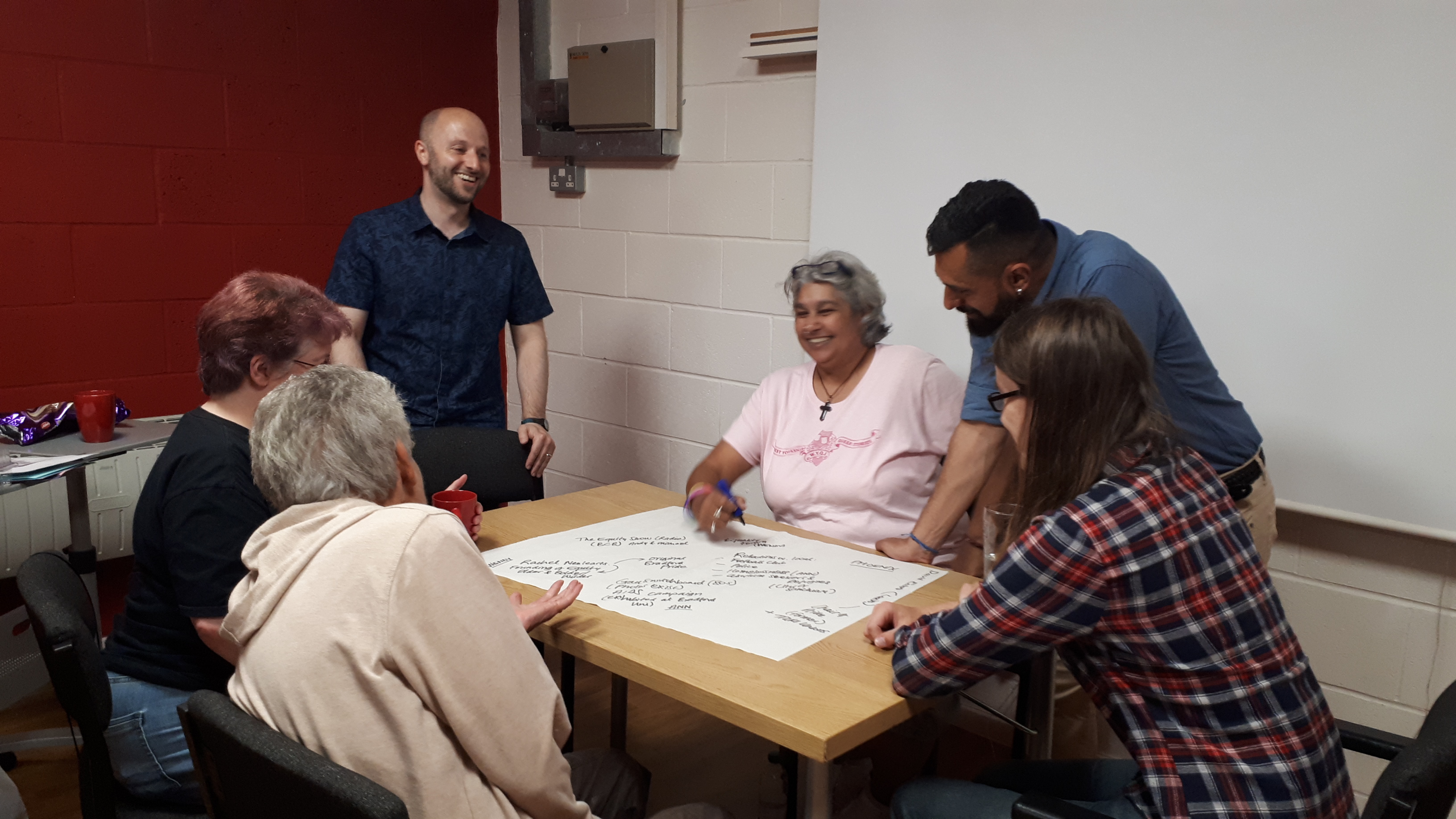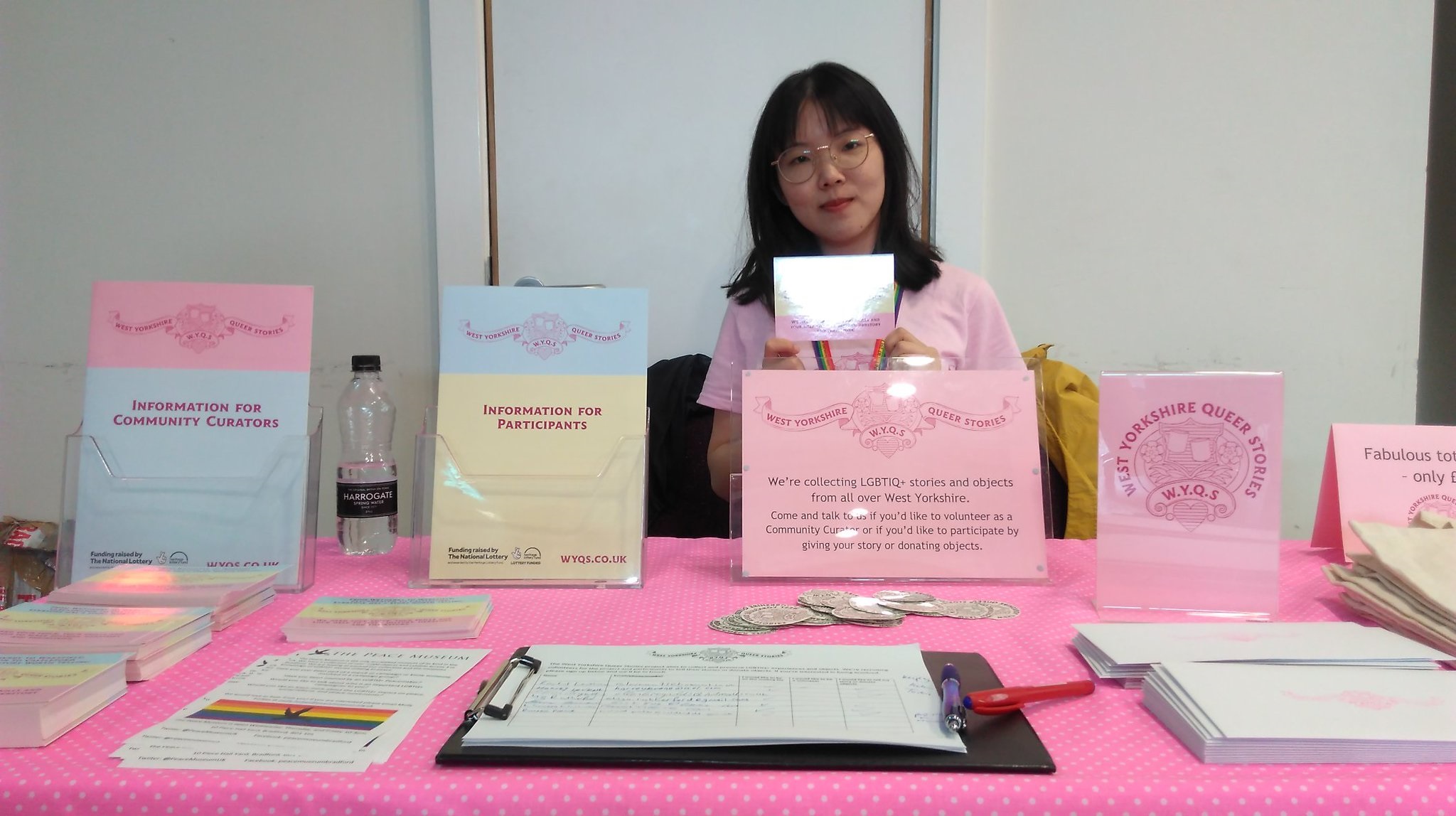
Oral history projects come in all different shapes and sizes, depending on funding, the number of people involved and what you want to achieve. We had National Lottery Heritage Funding for our project but you can do a queer oral history project on a small budget.
Starting your project – things to consider
- Clear aims
What exactly do you want to do and why? - Realistic objectives
How many people will you interview? Over what period? Over what geographical area? - Volunteers
Do you need volunteer interviewers? How will you recruit them? How will you train them? What will they gain from being involved? - Participants
How will you recruit participants? How will you make sure you have a range of different people? Where will you interview them? What accessibility issues do you need to consider? - Equipment
Do you have access to voice recorders, laptops and photocopiers? Do you need to buy any equipment? - Paperwork
What paperwork will you need? Where will you store it? - Storage for audio files
How will you store your interviews during the project? What format will you store your files in? Do you have a local archive or museum that can hold the interviews for the long term? - Ways to promote your project
How will you promote your project: with leaflets, posters, articles in the local press, social media, meeting with people and/or groups, having open meetings? - Ways to share your interviews
How will you make your interviews available and accessible? Will they be on a website? Will there be transcripts? Will you do talks or other events where you can play interview clips?

Paperwork
We have a number of documents specially created for the project which you could adapt to use as your own paperwork. We’ve saved these as PDFs and Word documents. Please feel free to use these or change them in any way you like.
Information for participants
It’s good practice to give potential participants information about your project so that they know what it involves if they decide to take part.
Agreement form
This document needs to be discussed with your participant when you meet to carry out their interview so they are clear about how their interview will be stored and how it could be used. Possible restrictions on the use of the audio can also be discussed and added to the form e.g. if someone wants to use a pseudonym because they are not ‘out’.
- See: Agreement form
Monitoring form
The monitoring form can be completed alongside the agreement form and allows you to track the different types of people you are interviewing. Having open questions so that participants identify themselves in their own words is particularly useful for a queer oral history project.
- See: Monitoring form
Summary sheet
We completed summary sheets about each interview shortly after they were recorded so that we had an overview of the interview complete with timecodes for particular points.
Spreadsheet
It is helpful to set up a basic spreadsheet so you can keep track of interviews, record participant contact details, have notes about any restrictions on interviews and keep information about the content of their interviews.
Feedback forms
Feedback forms can be left with participants with a SAE or emailed to them after the interview. They help to gauge how participants found the interviews and can be useful for reviewing and evaluation purposes.
- See: Feedback form
Volunteers
Our volunteers (called ‘community curators’) came to a one hour introductory session to find out about the project and then they completed a three hour training session. You could use our PowerPoint presentation as the basis for your training if you decide to use volunteers in your project. The training covers: information about the project, definitions of oral history, the importance of collecting queer histories, practical and ethical issues of carrying out interviews, using a voice recorder and transcribing.
- See: WYQS Volunteer Training presentation (via Google Slides).
Volunteers were asked to complete a form about themselves and the information was then added to our spreadsheet. This is useful for finding out volunteers’ interests and backgrounds so you can match them with participants.
Information for community curators
Our training was backed up by a booklet for our community curators which was given to them in a pack along with the information for participants, agreement forms, monitoring forms, feedback forms and summary sheets.
Donations form
We also collected objects and scanned documents for WYQS so we produced a donations form (similar to the agreement form) so that participants were clear about where their objects would be stored.
Further resources
National Lottery Heritage Fund
Advice on funding, guidance on good practice and lots of examples of different projects that have been funded.
Oral History Society
Information on the practicalities and ethics of carrying out oral history plus details of oral history training courses.
Oral History Society’s LGBTQ Special Interest Group
Information about the LGBTQ group and how to join.
Examples of queer oral history projects online
- Speak Out London: Diversity City
- British Library LGBTQ Histories
- LGBTQ Digital Collaboratory
Links to various LGBTQ oral history projects, mainly based in the US.